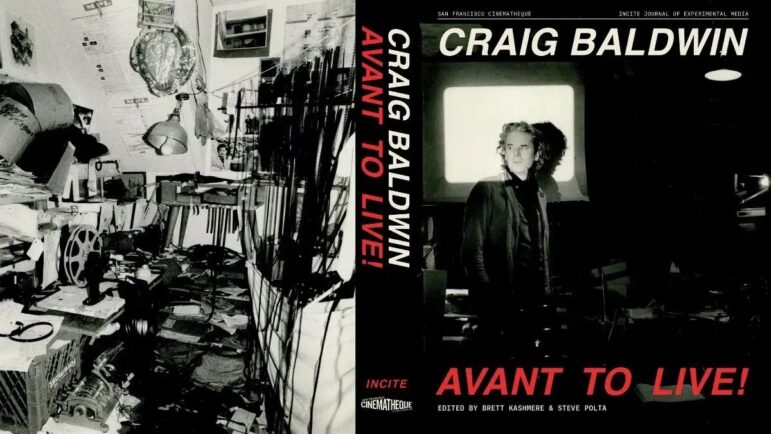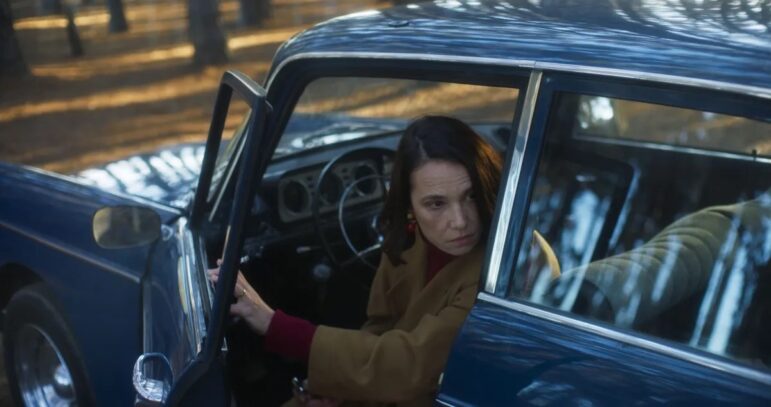Oakland native Craig Baldwin puts a unique stamp on the experimental filmmaking process by combining institutional and mass media footage with live action shots. He has an impressive body of work that’s often outlandish and always thought-provoking and adventurous.
His notable works, such as 1991’s cheeky “Tribulation 99: Alien Anomalies Under America,” skewer governmental entities’ relentless pursuit to enter other countries and cause trouble.
Others from his canon take stinging jabs at out-of-control capitalism and question authority and the history we’ve been taught. Many expound on issues we’re wrangling with today.
Sometimes his films get a shade more literal, other times they are obvious works of parody. In this age of conspiracy theorists, each feels more resonant and relevant than ever.
The Roxie in San Francisco celebrates Baldwin’s moxie, industrious outside-of-the-box thinking and outlaw spirit with a series of events.
In partnership with San Francisco Cinematheque and INCITE Journal of Experimental Media, there’s a book launch on Sunday for “Craig Baldwin: Avant to Live,” a 508-page deep dive into the 71-year-old’s career and life. It covers his cultural influence and significance, with insights and contributions from writers, artists and critical thinkers.

A signing reception at 4 p.m. Sunday at 518 Valencia St. features Baldwin and editors Brett Kashmere and Steve Polta. It’ll be followed by a celebration at 6 p.m. at the Roxie, including readings, film excerpts and an appearance by Baldwin.
A two-day, three-part film retrospective starts at 7 p.m. Tuesday at the Roxie, with Baldwin’s often-discussed and analyzed mid-length features “Tribulation 99: Alien Anomalies Under America” (which imagines alien encounters in Latin America); 1992’s “¡O No Coronado!,” a critical overview of Coronado’s trek across the Southwest that mixes live-action with archival images; and the rarely shown 1976 “Stolen Movie.” In the nine-minute short, Baldwin goes rogue, rushing into San Francisco grindhouse movie theaters to briefly capture snippets of the films, then books it out the exits.
On Wednesday, a 6:30 p.m. program begins with 1995’s “Sonic Outlaws,” which weighs in on, and with avant-garde flair, copyright and fair use laws and includes how Island Records legally challenged the group Negativland for a parody that featured Casey Kasem and U2. It’s followed by 1979’s “Wild Gunman,” which takes on the Marlboro Man and other macho figures that got fed to the mainstream.
For night owls, the 9 p.m. Wednesday program boasts three finds: 1999’s trippy sci-fier “Spectres of the Spectrum,” a 2007-set film about a father and daughter caught up in a wild time-traveling, corporate-bashing plot; excerpts from 2008’s “Mock Up on Mu,” a 13-chapter sci-fi collage in which an actor portrays L. Ron Hubbard; and 2015’s “Bulletin,” a rarely viewed short that involves headache-relief medication, a rifle and a family.
Baldwin is slated to appear at all screenings. For tickets and information, visit https://roxie.com/series/craig-baldwin-avant-to-live/.

Another find is at the Roxie on Friday. Seek it out, it gets under your skin. Manuela Martelli’s debut feature “Chile ‘76” might indeed be too much of a slow burn thriller – if you could accurately define it as such – for some. But I found it quiet and powerful from beginning to end. And what a beginning that is, as the upper-middle class Carmen (Aline Küppenheim) asks for a sun-kissed color of paint to renovate her family’s summer home only to get the purchase disrupted by a disturbance outside – the forceful apprehension of someone opposed to Augusto Pinochet’s lethal and oppressive rule.
It’s a remarkable scene since there is no violence nor a person taken away being shown. It does, however, instill the paranoia of the period, a time of fear that will eventually consume Carmen.
That happens when a priest she knows introduces her to a wounded rebel he’s harboring. He’s in dire need of medical help and since Carmen worked for the Red Cross, he’s sought her out.
Martelli’s film is absent of bloodshed, but there’s an escalating sense of fear in the richly shot “Chile ‘76” as Carmen grows more suspicious, a woman’s dead body is found on the beach and a car follows her too closely. Has she become a target? And have those risk-taking steps helped in any way? Those questions haunt not just Carmen, played with such low-key but effective skill by Küppenheim, but audiences as well.
For details, visit https://roxie.com/film/chile-76.
